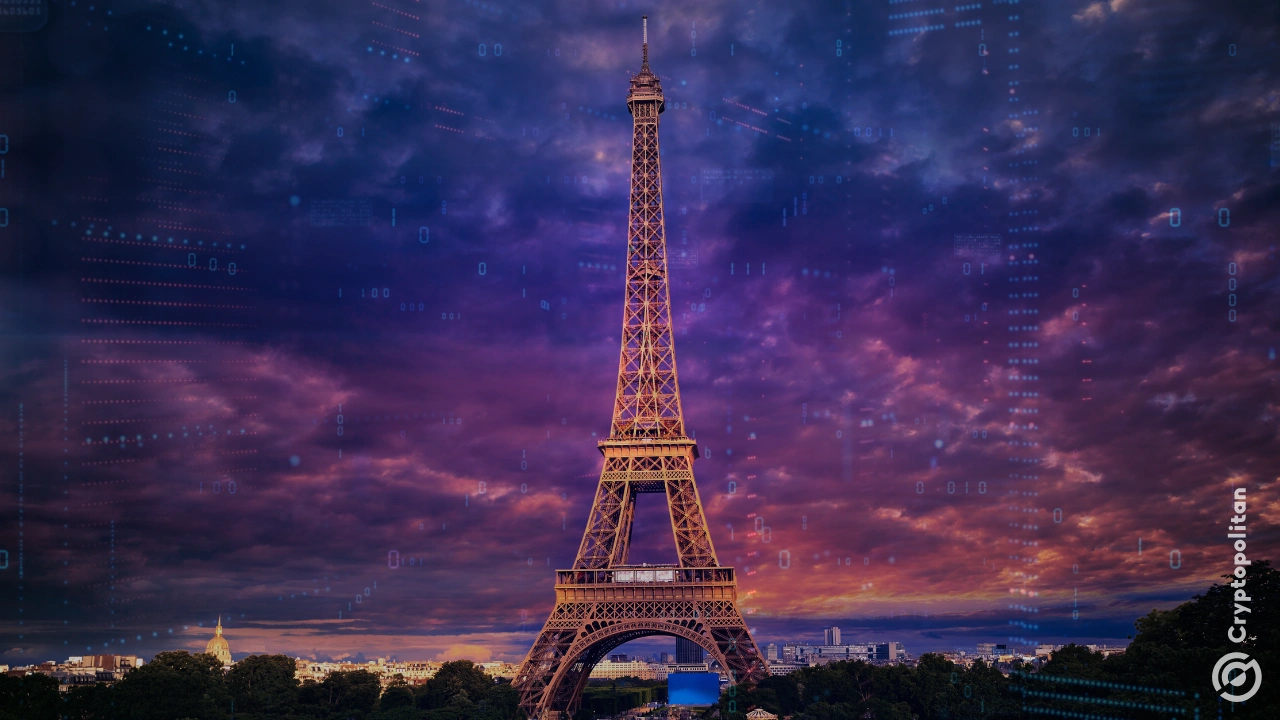 CaryptosHeadlines Media Has Launched Its Native Token CHT.
Airdrop Is Live For Everyone, Claim Instant 5000 CHT Tokens Worth Of $50 USDT.
Join the Airdrop at the official website,
CryptosHeadlinesToken.com
CaryptosHeadlines Media Has Launched Its Native Token CHT.
Airdrop Is Live For Everyone, Claim Instant 5000 CHT Tokens Worth Of $50 USDT.
Join the Airdrop at the official website,
CryptosHeadlinesToken.com

Inside Paris’s Station F, the world’s largest start-up incubator, ambition buzzes louder than the city’s café chatter. Station F, since opening in 2017, has birthed over 7,000 businesses. Here, AI reigns supreme, with 34 of the incubator’s 40 top-performing start-ups built entirely around it.
One of the crown jewels is Mistral, an AI company now valued at $6 billion. The start-up has reportedly developed some of the most impressive foundation models globally, proving that Paris is no longer just a fashion capital.
But while Station F hums with progress, the rest of France faces political instability and economic uncertainty. The country dreams of leading the global AI race, but can it keep up?
Paris eyes the AI crown
France’s education system churns out some of the best engineers in the world. For decades, the country has been a machine for creating technical talent, and now that legacy is being weaponized for AI.
In the U.S., similar talent costs five to eight times as much, making France a breeding ground for start-ups with big ideas but lean budgets.
There’s also a cultural shift. Starting a business in France wasn’t always trendy. It was frowned upon in a country deeply tied to traditional employment structures. Now, being an entrepreneur is almost fashionable.
Add to that a surge in venture capital—now easier to secure than ever—and the pieces of the puzzle are falling into place. Even President Emmanuel Macron has jumped on the tech bandwagon, championing start-ups and innovation at every turn.
One major way France is distinguishing itself is through open-source AI. Unlike big U.S. companies that lock their tech behind proprietary systems, French start-ups are sharing the code. The idea is simple: collaboration beats competition.
Open-source systems allow businesses across industries—healthcare, transportation, education—to adopt AI faster. This strategy could be France’s secret weapon, but it also needs to overcome its political mess and make it work.
A funding rollercoaster
For all the progress, French tech hit a roadblock last year. Start-ups raised €5.9 billion in the first half of 2024, but that number plummeted to €3 billion in the second half. Divisive parliamentary elections, protests, and overall instability spooked investors.
France ranks eighth on the Global Startup Ecosystem Index, climbing from twelfth in 2020. It’s still behind European heavyweights like the UK, Sweden, and Germany. The U.S., of course, remains in a league of its own.
With 5,509 AI start-ups and $335 billion in private investments over the last decade, it’s the undisputed leader. China, meanwhile, has 1,446 AI start-ups and billions in state-backed funding. Even Israel boasts 442 AI start-ups.
Regulation: A curse or a blessing?
One thing holding French start-ups back is the European Union’s AI Act. This ambitious legislation aims to tightly regulate artificial intelligence, with rules on transparency and ethical use.
Some entrepreneurs think competing with American companies that aren’t shackled by rules like that will be tough. Others, though, think the regulations could work in France’s favor. Strict rules might build trust in the technology and drive innovation in safer, more creative ways.
Still, regulations don’t change the reality of funding gaps. U.S. investors poured $335 billion into AI over a decade, compared to France’s $4 billion in just six months. China, meanwhile, is set to spend $38.1 billion on AI by 2027.
Even within Europe, the UK has 727 AI companies, and Canada’s government is backing its 397 AI start-ups with billions in funding.
But Station F’s young founders aren’t too worried. They’re betting that France’s technical talent and open-source philosophy will be enough to win. And this optimism will face its biggest test in 2025.
A Step-By-Step System To Launching Your Web3 Career and Landing High-Paying Crypto Jobs in 90 Days.











